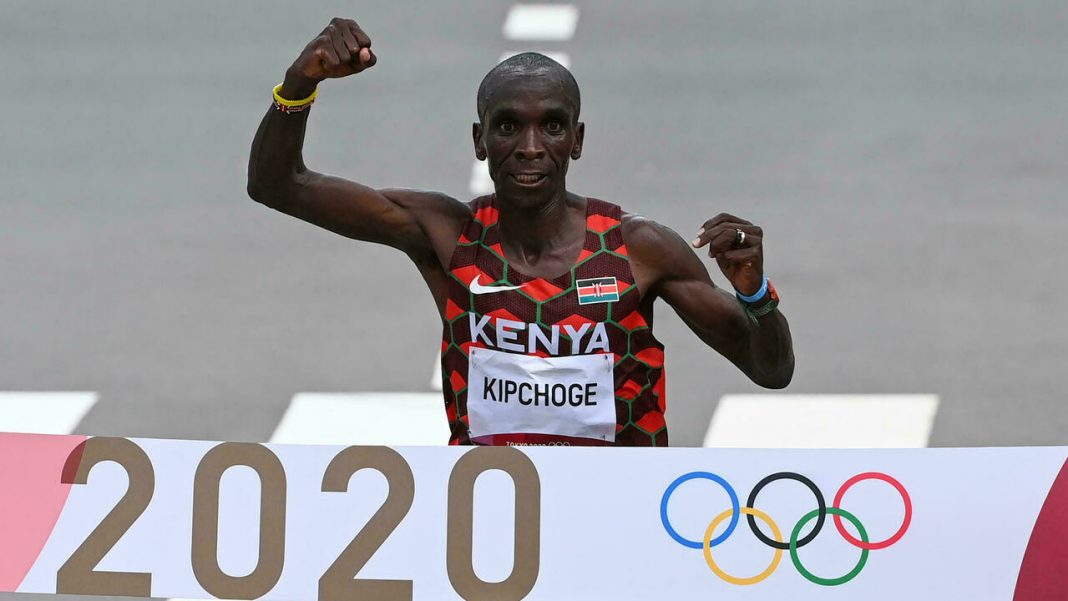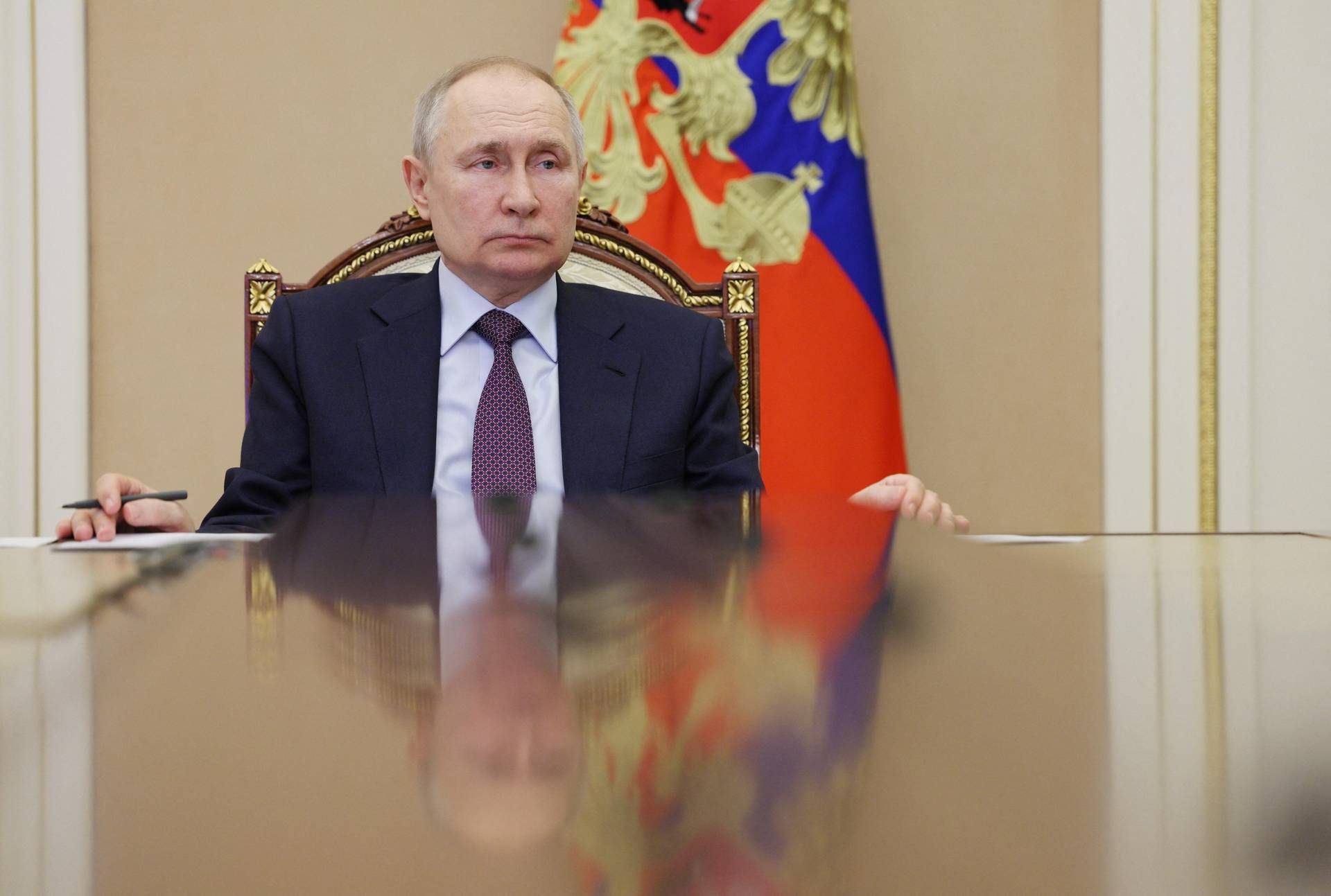Posted in: the average :
Sapporo (Japan) (AFP)
Kenyan Eliud Kipchoge triumphed alone in the world on Sapporo asphalt, at the end of the Olympic marathon Sunday morning, as he had done five years earlier in Rio. What to enter a little more into the legend.
A thousand kilometers north of Tokyo, where road races have been moved in search of milder weather – which, in a sense, ended Sunday morning – Kipchoge won in solitary confinement in two hours, 8 minutes and 38 seconds.
The look back he threw at the last hectometers was completely unnecessary because he dominated the race.
More than a minute late, and at the cost of one last sprint, Dutchman Abdi Nagyi (2:09.58) and Belgium’s Bashir Abdi (2:10:00) denied Kenya a fresh double the day after her one in the women’s marathon.
Thus, at the age of 36, Kipchoge became the third runner to win the Olympic marathon twice in quick succession, after Ethiopia’s Abebe Bikila (1960 and 1964) and East Germany’s Waldemar Serpinski (1976 and 1980).
– ‘Martin’ –
Dominate the race to get close to thirty kilometers – you should have seen him talking softly and exchanging a check, all smiles, with a Brazilian rider just before the halfway point – the world record holder (2:01:39 in Berlin in 2018) and then playing his opponents on two stages.
At the 28th kilometer, his first acceleration reduced the leading group to about ten passengers.
30 passed, the second was a killer, and no one was able to stay in the wake of his aerial stride and his glowing T-shirt in a traditional pattern in Kenyan colours, red, green and black.

“When he left, I said to myself + he’s Mars +, he’s on another planet +,” Nagy smiles.
Then Kipchoge set off: from about twenty seconds to attack the 35th kilometer, his advance increased to more than a minute at forty.
About two hours earlier, the marathon – which is also the kick-off for the final day of the Tokyo Games – got underway at 07:00, as expected, under 26 degrees and 80% humidity. The weather is a little less hot than the previous days, but it’s still trying on the living things in spite of everything.
The first damage didn’t take long for it to happen. Ethiopian Shura Kitata, winner of the London Marathon at the end of 2020 – Kipchoge’s first defeat in seven years – and one of the candidates, split from the ninth kilometer, his thigh visibly sore. Ugandan Stephen Kibroch, 2012 Olympic champion, nearly tenth.
– ‘Refrain from searching’ –
Then, a little over an hour later, it was the turn of another Ethiopian, Sesay Lima.
The third player, Lilisa Desisa, did not resist the first push made by the future winner.
Kenenisa Bekele, whose duel with Kipchoge salivated all running enthusiasts, was not selected.
Frenchman Nicolas Navarro made a stunning comeback to finish 12th (2:12:50). Morhad Amdouni, who remained in the lead until the 30th kilometer, finished in 17th place (2:14:33).

Now a four-time Olympic medalist in several editions (bronze in 2004 and silver in 2008 over 5,000 meters, marathon gold in 2016 and 2020) and already a marathon legend, he also spent less than two hours during an unofficial marathon in 2019, to How far do Kipchoge go?
“The future will tell, he is the philosopher. For now, I will enjoy my victory in Tokyo.”
Throughout the course, as in all races competing in Sapporo, dozens and dozens of volunteers, in yellow T-shirts and hats, called on passersby, with a banner around their necks, to “refrain from looking” and continue watching. to be in motion.
It’s hard for a runner of this stature.
© 2021 AFP

“Twitter advocate. Proud student. Devoted internet specialist. Pop culture aficionado.”




